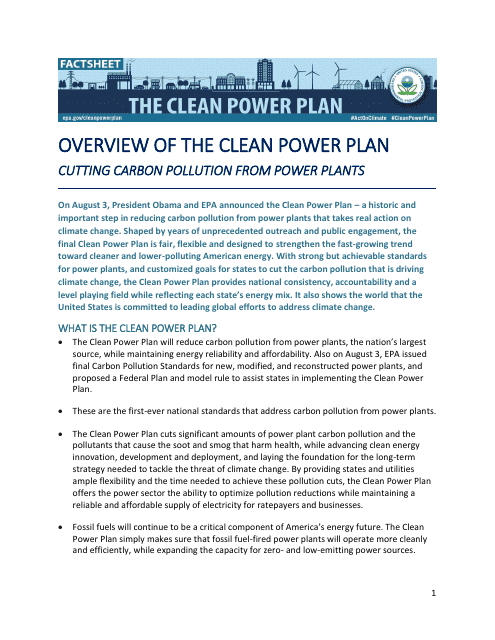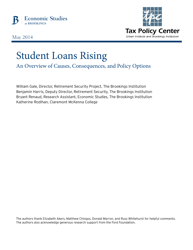Overview of the Clean Power Plan: Cutting Carbon Pollution From Power Plants
Overview of the Clean Power Plan: Cutting Carbon Pollution From Power Plants is a 9-page legal document that was released by the U.S. Environmental Protection Agency and used nation-wide.
FAQ
Q: What is the Clean Power Plan?
A: The Clean Power Plan is a policy aimed at reducing carbon pollution from power plants.
Q: Why is carbon pollution a concern?
A: Carbon pollution is a major contributor to climate change and can have harmful effects on human health.
Q: How does the Clean Power Plan aim to cut carbon pollution?
A: The plan sets carbon pollution reduction goals for states and provides flexibility in how they achieve those goals.
Q: What are the benefits of the Clean Power Plan?
A: The plan can lead to cleaner air, improved public health, and increased use of clean energy sources.
Q: Who is responsible for implementing the Clean Power Plan?
A: The Environmental Protection Agency (EPA) is responsible for implementing and enforcing the plan.
Q: Is the Clean Power Plan still in effect?
A: The Clean Power Plan was repealed in 2019, but some states have taken actions to continue reducing carbon pollution.
Q: What are some alternative policies to the Clean Power Plan?
A: States and local governments can implement their own clean energy policies, and there are other federal initiatives aimed at reducing carbon emissions.
Q: Are there any legal challenges to the Clean Power Plan?
A: Yes, some states and industry groups have filed lawsuits against the Clean Power Plan.
Q: What can individuals do to support clean power?
A: Individuals can promote energy efficiency, use renewable energy sources, and advocate for clean power policies at the local and national level.
Q: What is the status of carbon reduction efforts in the United States?
A: While the Clean Power Plan is no longer in effect, many states and cities have committed to reducing carbon emissions and transitioning to clean energy sources.
Form Details:
- The latest edition currently provided by the U.S. Environmental Protection Agency;
- Ready to use and print;
- Easy to customize;
- Compatible with most PDF-viewing applications;
- Fill out the form in our online filing application.
Download a printable version of the form by clicking the link below or browse more legal forms and templates provided by the issuing department.




















